|
|
 |
|
OVERVIEW
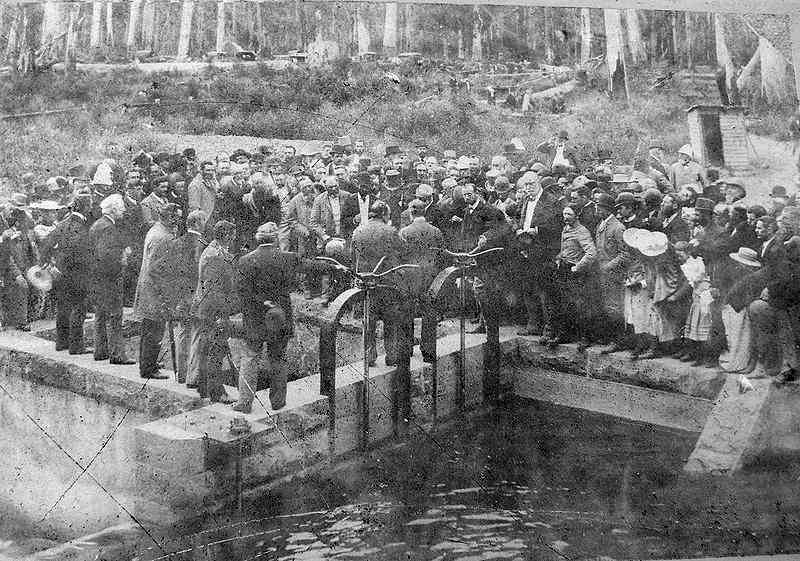
|
| 1927 Official opening ceremony |
|
 |
|
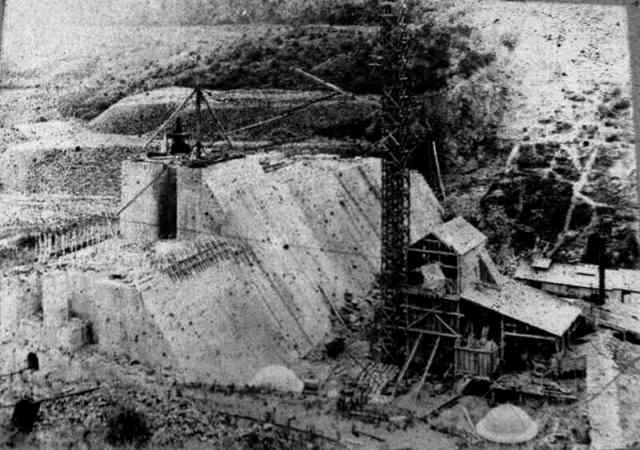
|
| Consruction in 1921 |
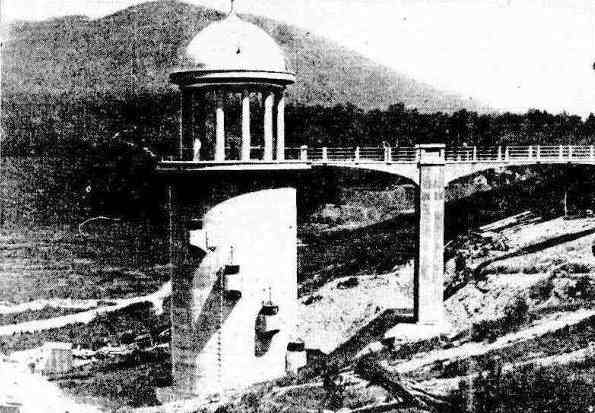
|
| Building the Outlet Tower in 1924 |
1890
Graceburn Weir, Graceburn Aqueduct, and Donnelly's
Weir constructed
1891
The earlier Watts or Maroondah Weir, formally opened on 18 February,
1891 by the Governor Lord Hopetoun, was submerged beneath the new Maroondah Reservoir. The structure can still be seen when
water levels are low.
1915
Exploratory works for the Maroondah
dam began in 1915, and work on preparing the designs and clearing the site for the reservoir began in 1917.
The Watts
River diversion works were completed between 1918 and 1919, and construction began in 1920.
1918
The design for the dam was completed and the clearing of the reservoir
site began. The first contract was let in August for diversion of the Maroondah River by an open concrete channel constructed
on one side of the valley.
1920
Temporary dams were located at each
end to divert the course of the river. The first contract for the construction of the dam was let to E. Carroll for the lower
portion only in October 1920, for the sum of 116,955 pounds. The work was completed in October 1922, and a second contract
began for the dam outlet tower and subsidiary works totalling 502, 124 pounds
TRANSPORT OF MATERIALS
All sand and cement for the dam structure was brought
by rail from Melbourne to the terminal of the broad gauge railway at Healesville and conveyed to the dam site via a bi-cable
aerial ropeway erected in 1919-20 for 10,961 pounds.
A travelling aerial cableway was used for conveying materials
along the dam wall.
This system, with modifications, was also to be used during the construction of the Silvan Dam
between 1927 and 1931.
1927
The dam was completed and the Reservoir
Park was developed.
1929
The Board undertook extensive planting
and beautification work in the vicinity of the reservoir, and constructed two brick residences for Caretakers' Quarters
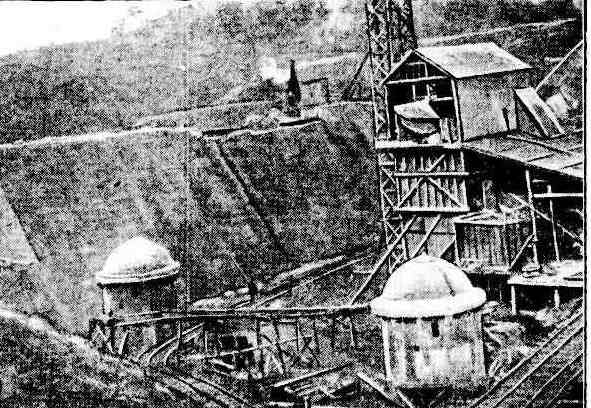
|
| 1923 - construction |
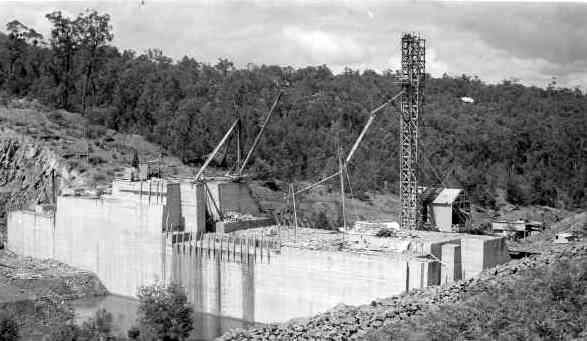
|
| 1921 construction of spillway |
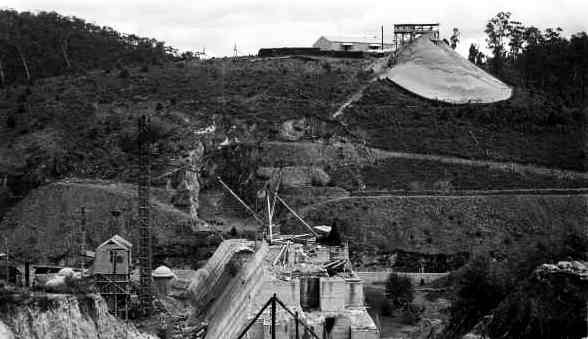
|
| 1923 aerial ropeway |
|
 |
|
|
 |
|
|
 |
|
|
|
THE AERIAL ROPEWAY SYSTEM
The aerial ropeway, during the early stages of its erection, proved highly interesting to local residents,
and for six years was a source of attraction to visitors.
The construction of the aerial by the Metropolitan Board
of Works look six months to complete. It was commenced at the latter end of 1920, and was completed in April 1921. It had
been in active commission until 1927, and the only repair necessary had been the replacement of two wooden structure supports.
A
stationary cable and a lower transmitting one stretched from the reservoir works to the railway station and back again.
Along
these cables 84 buckets travelled backwards and forwards for six years, being driven by a steam plant at the headworks.
The
timetable had been arranged with such mathematical precision that
throughout the day, year in and year out, 42 loaded
buckets on their way to the reservoir kept pace with a similar number of empty ones descending for their load. A space of
100 metres separated each bucket, and buckets dumped their loads at the reservoir four minutes after they left the station.
Eight
cubic feet was the capacity of each bucket. Three buckets accommodated
one ton, and 150 loaded buckets made the trip to
the reservoir daily.
Every hour 52 empty buckets travelled down to the sand bin, received their load, and left on the
3 km return trip, lifting the load 100 metres on the journey. By this means cement and sand were safely transported in
mid-air to help construct the dam.
The ropeway passd over houses and electrical transmission lines, and no accidents
were reported in the six years of its operation.
(Based on an article published in the Healesville and Yarra Glen Guardian
of May 14, 1927)
|
|
|
 |

